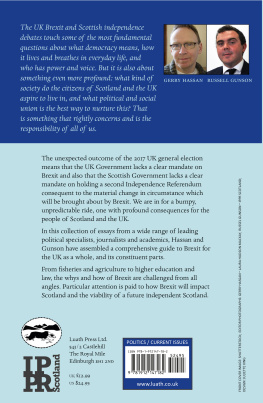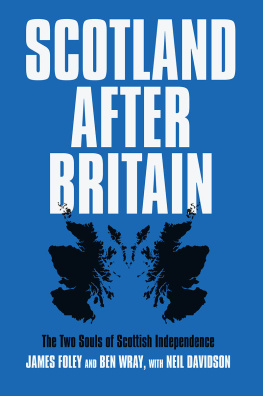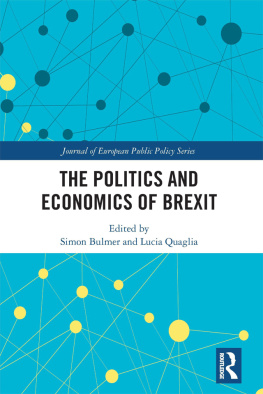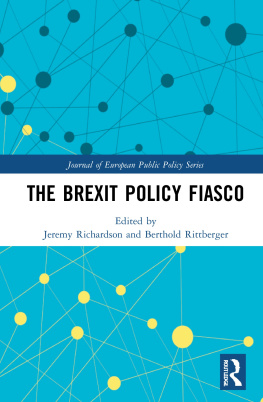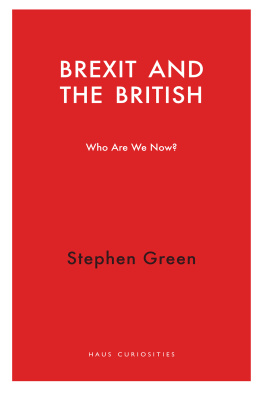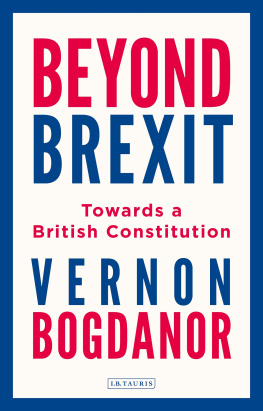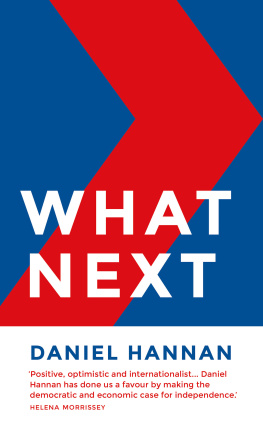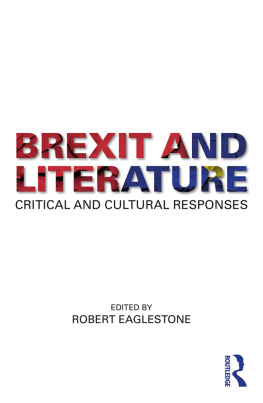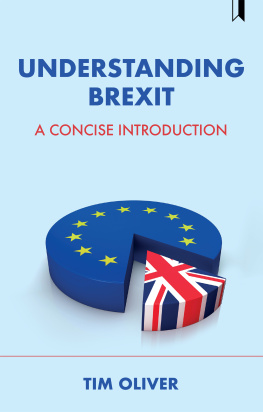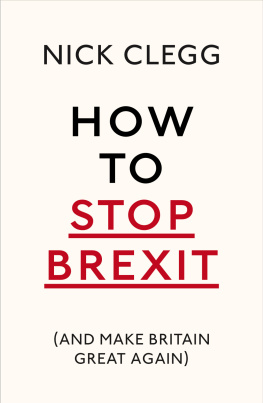


First published 2017
ISBN: 978-1-912147-18-2
The authors right to be identified as author of this book under the Copyright, Designs and Patents Act 1988 has been asserted.
The paper used in this book is recyclable. It is made from low chlorine pulps produced in a low energy, low emission manner from renewable forests.
Printed and bound by Bell & Bain Ltd., Glasgow.
Typeset in 11 point Sabon by Lapiz
the contributors 2017
Contents
GERRY HASSAN AND RUSSELL GUNSON
KIRSTY HUGHES
TOBIAS LOCK
LAURA CRAM
JOHN CURTICE
The Scottish parliament and the independence referendum
MATTHEW QVORTRUP
ANDREW CUMBERS
RICHARD KERLEY
GRIFFIN CARPENTER
PETE RITCHIE
RICHARD MARSH
ANDREA M. NOLAN
OWEN KELLY
KEVIN HANNAM
GRANT ALLAN AND DAVID COMERFORD
SVEA MIESCH
MARIA FLETCHER AND REBECCA ZAHN
ANGELA OHAGAN
AILEEN MCHARG
MARCO G. BIAGI
ADAM TOMKINS
DOUGLAS ALEXANDER
ED G. POOLE
DUNCAN MORROW AND JONNY BYRNE
PAUL GILLESPIE
MADELEINE BUNTING
JOHN EDWARD
ANA ROMERO GALN
MICHAEL WOHLGEMUTH
FABIAN ZULEEG AND JANIS A. EMMANOUILIDIS
JIM BULLER
STEPHEN BUSH
ANDREW GAMBLE
Acknowledgements
A book like this is a product of many different hands. It has gained from much support, advice and the enthusiasm and skills of many people. It is impossible to individually thank each person who assisted and made this possible, but to everyone who played a part, we gratefully thank you.
First and foremost, we would like to thank every single contributor who gave their time, expertise and knowledge to make this happen. We gave people difficult remits, asking them to address a whole host of issues, many of which will evolve and change dramatically in the next few years, and asked them to bring calm heads and clear analysis. We could not have wished for a more impressive list of contributors to whom we are enormously grateful.
We would also like to thank colleagues in the Institute for Public Policy Research and in particular, Rachael Thomas in IPPR Scotlands offices. Many thanks are also due to numerous people who gave their advice in the shaping of this book and its contents and contributors: Kirsty Hughes, Michael Keating, Nigel Smith, Douglas Fraser, Jeremy Cliffe of The Economist, and Stephen Booth of Open Europe.
Significant thanks are also due to the national treasures that are Luath Press - Gavin MacDougall and all his staff - who have been exemplary champions of this book from the outset, and who have, from the beginning to the end of this, made us confident that the entire project was safe in their formidable hands.
Finally, a project such as this has many eyes and supports, and this book would not have been possible without the insights and checking of Rosie Ilett and Ash Burnel who assisted in the latter stages of production.
The enclosed contents do not represent the collective opinions of IPPR or IPPR Scotland, but are an offering and contribution to inform this important and historic debate. We hope that readers will find the enclosed of interest, illuminating and stimulating, and a worthy contribution and guide to the next few years of developments in Scotland and the UK in relation to Brexit.
A final word over timing. In these bewildering and often fast-changing times, this book was written before the UK 2017 election was called by Theresa May, lost by her and the Tories, and won by no one. The entire book has been reviewed in light of this, and revised in several, but not all places. The general thesis of the challenges and ambiguities of Brexit for Scotland and the UK, and the absences of serious preparatory work and strategy by the UK Government remains as a factor which will define much of future events.
| Gerry Hassan | Russell Gunson |
Scotland, the UK and Brexit: an introduction
Gerry Hassan and Russell Gunson
Introduction
WE LIVE IN dramatic and unpredictable times. On 23 June 2016 UK voters were asked Should the United Kingdom remain a member of the European Union or leave the European Union? and responded:

Thus began the post-Brexit Britain political environment with a majority of 1,269,501 voting to leave the EU; a decision that has understandably dominated and overshadowed British politics since. It was not, of course, a united UK that made that decision. Scotland voted (62:38) to remain, Northern Ireland (56:44), so too did significant parts of England, such as London (60:40).
The challenge this poses to the UK and its component parts is immense as this IPPR Scotland book explores. Specifically, it addresses the consequences that flow from Brexit for Scotland, while also examining UK and international implications. It analyses the terrain, the major issues and possible developments, the context in which this takes place and how some of the major actors including the Scottish and UK governments, and the EU itself, may act.
The Scottish dimension
All of this poses numerous challenges for Scotland. One major factor is that in 2014 Scotland voted by 55 per cent to 45 per cent to remain in the UK. Yet less than two years later, in June 2016, by the margin of 62 per cent to 38 per cent, Scots voted to remain in the EU. This has brought to the fore one of the central tensions in Scottish politics of two competing and contradictory mandates. People in Scotland are, in essence, told in no uncertain terms by the UK government, and by a significant proportion of Scottish parliament politicians, that they cannot have a political settlement that respects both.
There are problems for everyone politically. Much of pro-union opinion has come to state that Scotland voted to remain in the UK, and then voted as part of a UK that decided to come out of the EU. This is a literal interpretation of the events of the last two years which, while factual, does not really address issues of political legitimacy and perception. This is particularly the case, given the prominence of the EU in the first independence referendum campaigns.
The Scottish government, on the other hand, decided to set out its position post-Brexit in a White Paper, Scotlands Future in Europe, which was seen by many as considered and thoughtful and a search for a middle ground (Scottish Government, 2016). The commentator Hugo Rifkind, normally no friend of the SNP, called it a well-judged approach, because it cuts right to the heart of the current Scottish political crisis (Rifkind, 2016).
However, the case made by the Scottish government has significant political and constitutional consequences. First, there are the practical issues of how Scotland could sit in the single market and Customs Union while the rest of the UK (rUK) does not. How this would work economically and practically as Tobias Lock addresses in his contribution is filled with complications.
Second, and more important in exploring the possibilities of such arrangements, is the presence of political will (and goodwill) to see them a reality. This seems to be lacking from one part of the equation, the UK government, rather paradoxically in that the UKs political elites have often celebrated their adaptability in governmental and constitutional manners. The UK government has so far, post-Brexit, shown no interest in pursuing a flexible and hybrid approach a constitutional response so regularly championed within the UK through a serious consideration of what a geographically differentiated Brexit would like within the UK, as opposed to sector-by-sector deals.
Next page
